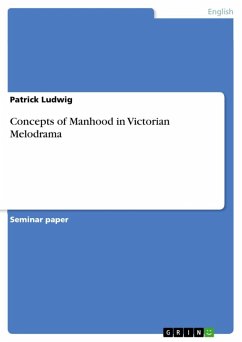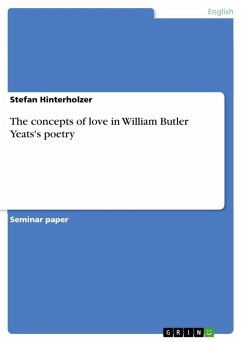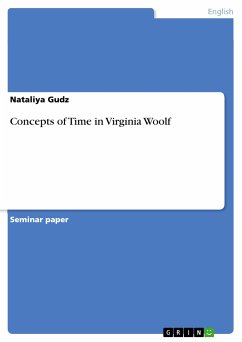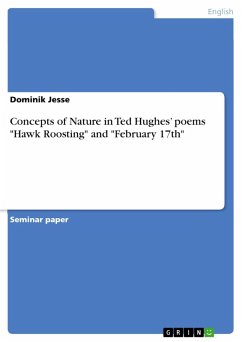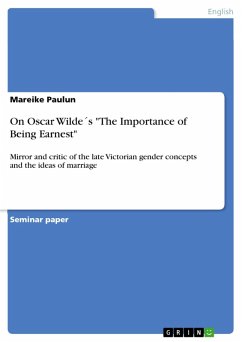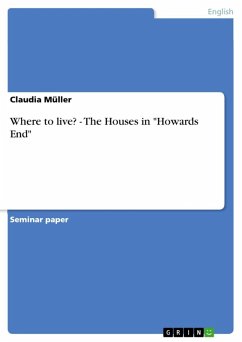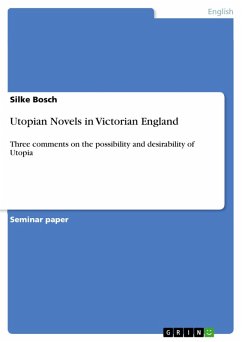Seminar paper from the year 2006 in the subject English Language and Literature Studies - Literature, grade: 1,0, Johannes Gutenberg University Mainz (Department of English and Linguistics), course: Seminar Victorian Melodrama, language: English, abstract: In this paper, we will be concerned with concepts of manhood in Victorian melodrama, based on "Black-Ey´d Susan" by Douglas Jerrold (1829), "Money" by Edward Bulwer-Lytton (1840), "Masks and Faces" by Charles Reade and Tom Taylor (1852), "The Ticket-of-Leave Man" by Tom Taylor (1863), "Lady Audley´s Secret" by Colin Henry Hazlewood (1863), and "Caste" by Thomas William Robertson (1867). For a comprehensive analysis of the two main characters of every play, the hero and the villain (3.1 and 3.2), the general characteristics and attendant circumstances of Victorian melodrama will be delineated (2.1 and 2.2). In chapter (3), the characteristic traits of heroes and villains will be elaborated and we shall see in which respect they differ and which traits they possibly share. The last chapter will attempt a conclusive explanation as to their differences and the origins thereof. In order to illuminate the various facets of manhood and gentlemanliness, this paper will largely draw upon the ideas of John Ruskin concerning the nature of man. Some plays, however, do not have villains or heroes who strictly conform to stereotypes or clearly designate pure evil or pure goodness. Some villainous characters are not innately evil and can be brought back to the good side. Conversely, a hero is not necessarily an innately good character but can fall prey to temptations. The villainous and the virtuous do not only distinguish themselves from one another by their morals but also by varying degrees of manliness or gentlemanliness respectively. The question that shall concern us here is in which way do they differ concerning masculinity in general and in gentlemanliness in particular. Is it justified to view the hero as being manlier than the villain?
